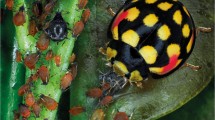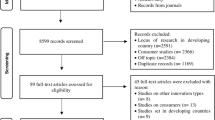Abstract
The siren call of easy solutions to socio-agricultural problems is often studied as a reflection of anthropocentric ideologies espousing faith in human ingenuity to overcome, often with technological innovations, any hurdles thrown at us. This theme has been reflected especially strongly in my own research on pesticide resistance, with farmers continually referring to the necessity of an ‘easy button’ or ‘silver bullet’ (usually in the form of a new chemical herbicide) that will solve the extremely complex and multi-dimensional problem of resistance. Drawing on my own research experiences, I examine parallels between this trend and Dr. David Connor’s 2022 Agriculture, Food, and Human Values Society presidential address, in which he emphasized the need to move from mono-disciplinary research with the target of explicit knowledge to transdisciplinary research engaged in co-creation of knowledge. Just as farmers have sought the ease and rewards of an easy button, so academics have often focused on simplistic, explicit knowledge generation to the exclusion of messy, complex approaches to real world problems. However, just as with farmers, academics as individuals are not necessarily to blame; there are structures and contextual factors constraining available choices, as well as a growing reflexive consideration of what our priorities should be.
Similar content being viewed by others
References
Bagavathiannan, M.V., S. Graham, Z. Ma, J.N. Barney, S.R. Coutts, A.L. Caicedo, et al. 2019. Considering weed management as a social dilemma bridges individual and collective interests. Nature Plants 5 (4): 343–51.
Bannink, D., and W. Trommel. 2019. Intelligent modes of imperfect governance. Policy and Society 38 (2): 198–217.
Barber, L. T., K. L. Smith, R. C. Scott, J. K. Norsworthy, and A. M. Vangilder. "Zero tolerance: a community-based program for glyphosate-resistant Palmer amaranth management." University of Arkansas Cooperative Extension Service Bulletin FSA2177: Fayetteville (2015)
Bétrisey, F., Boisvert, V., & Sumberg, J. (2022). Superweed amaranth: metaphor and the power of a threatening discourse. Agriculture and Human Values, 39(2), 505–520.
Brosnan, J.T., M.W. Barrett, and P.C. Bhowmik. 2020. Herbicide resistance in turfgrass: A chance to change the future? Weed Technology. 34 (3): 431–436.
Brozyna, C., T. Guilfoos, and S. Atlas. 2018. Slow and deliberate cooperation in the commons. Nature Sustainability. 1 (4): 184–189.
Buttel, F.H. 2000. Ecological modernization as social theory. Geoforum 31 (1): 57–65.
Carrière, Y., Z.S. Brown, S.J. Downes, G. Gujar, G. Epstein, C. Omoto, et al. 2020. Governing evolution: A socioecological comparison of resistance management for insecticidal transgenic Bt crops among four countries. Ambio 49 (1): 1–16.
Dana Fisher, R., and William R. Freudenburg. 2001. Ecological modernization and its critics: Assessing the past and looking toward the future. Society & Natural Resources 14 (8): 701–709.
Dentzman, K. 2018a. “I would say that might be all it is, is hope”: The framing of herbicide resistance and how farmers explain their faith in herbicides. Journal of Rural Studies. 57: 118–127.
Dentzman, K. 2018b. Herbicide resistant weeds as place disruption: Their impact on farmers’ attachment, interpretations, and weed management strategies. Journal of Environmental Psychology. 60: 55–62.
Dentzman, K., and I.C. Burke. 2021. Herbicide resistance, tillage, and community management in the Pacific Northwest. Sustainability. 13 (4): 1937.
Dentzman, K., R. Gunderson, and R. Jussaume. 2016. Techno-optimism as a barrier to overcoming herbicide resistance: Comparing farmer perceptions of the future potential of herbicides. Journal of Rural Studies. 48: 22–32.
Dentzman, K., and R. Jussaume. 2017. The ideology of U.S. agriculture: How are integrated management approaches envisioned? Society and Natural Resources 30 (11): 1311–27.
Dentzman, K., C. Pilcher, M. Bagavathiannan, M. Barrett, and I. Burke. 2020. Lessons in building community capacity for managing agricultural pests: A science policy experience in Iowa. Outlooks on Pest Management. 31 (6): 249–256.
Ervin, D.E., E.H. Breshears, G.B. Frisvold, T. Hurley, K.E. Dentzman, J.L. Gunsolus, et al. 2019. Farmer attitudes toward cooperative approaches to herbicide resistance management: A common pool ecosystem service challenge. Ecological Economics. 157: 237–245.
Gould, F., Z.S. Brown, and J. Kuzma. 2018. Wicked evolution: Can we address the sociobiological dilemma of pesticide resistance? Science 360 (6390): 728–32.
Heap, I. 2022. The international survey of herbicide resistant weeds. https://www.weedscience.org/
Height, K., S. Graham, R. Campbell, G. Hawkes, S. Schrader, L. Blessington, et al. 2022. Opportunities to manage herbicide resistance through area-wide management: Lessons from Australian Cropping Regions. Sustainability. 14 (3): 1793.
Hightower, Jim. 1973. Hard tomatoes, hard times. Cambridge: Schenkman Publishing Company.
Jia, Y. J., Dickinson R. If everything is connected, where do you begin? In: Personal Sustainability Practices. Edward Elgar Publishing; 2021. p. 46–57.
Jussaume, R.A., K. Dentzman, and M.D.K. Owen. 2019. Producers, weeds, and society. Journal of Integrated Pest Management. 10 (1): 1–6.
Jussaume, R.A., and D. Ervin. 2016. Understanding weed resistance as a wicked problem to improve weed management decisions. Weed Science 64 (SP1): 559–569.
Lence SH, Singerman A. When does voluntary coordination work? Evidence from area‐wide pest management. American Journal of Agricultural Economics. 2022
Livingston, M. J., Fernandez Cornejo, J., Unger, J., Osteen, C., Schimmelpfennig, D., Park, T., & Lambert, D. M. (2015) The economics of glyphosate resistance management in corn and soybean production (November 13, 2015). Economic Research Report No. ERR-184, U.S. Department of Agriculture, April, 52 pp. Available at SSRN: https://ssrn.com/abstract=2690579
Llewellyn, R.S., R.K. Lindner, D.J. Pannell, and S.B. Powles. 2004. Grain grower perceptions and use of integrated weed management. Australian Journal of Experimental Agriculture. 44 (10): 993.
Lubell, M., A. Douglas Henry, and M. Mccoy. 2010. Collaborative institutions in an ecology of games. American Journal of Political Science 54 (2): 287–300.
Moss, S. 2019. Integrated weed management (IWM): Why are farmers reluctant to adopt non-chemical alternatives to herbicides? Pest Management Science 75 (5): 1205–1211.
Ney, S., and M. Verweij. 2015. Messy institutions for wicked problems: How to generate clumsy solutions? Environment and Planning C: Government and Policy. 33 (6): 1679–1696.
Norsworthy, J.K., S.M. Ward, D.R. Shaw, R.S. Llewellyn, R.L. Nichols, T.M. Webster, et al. 2012. Reducing the risks of herbicide resistance: Best management practices and recommendations. Weed Science 60 (SP1): 31–62.
Ostrom, E. 1990. Governing the commons: The evolution of institutions for collective action. Cambridge: Cambridge University Press.
Reinhardt, C. 2016. The, “wicked” problem that is herbicide resistance: Chemicals & fertiliser. Oilseeds Focus. 2 (5): 14–15.
Shaw, D.R. 2016. The “wicked” nature of the herbicide resistance problem. Weed Science 64 (SP1): 552–558.
Xu, G., A. Sarkar, and L. Qian. 2021. Does organizational participation affect farmers’ behavior in adopting the joint mechanism of pest and disease control? A study of Mexican County, Shaanxi Province. Pest Management Science. 77 (3): 1428–1443.
Author information
Authors and Affiliations
Corresponding author
Additional information
Publisher's Note
Springer Nature remains neutral with regard to jurisdictional claims in published maps and institutional affiliations.
Rights and permissions
Springer Nature or its licensor (e.g. a society or other partner) holds exclusive rights to this article under a publishing agreement with the author(s) or other rightsholder(s); author self-archiving of the accepted manuscript version of this article is solely governed by the terms of such publishing agreement and applicable law.
About this article
Cite this article
Dentzman, K. Academics and the ‘easy button’: lessons from pesticide resistance management. Agric Hum Values 39, 1179–1183 (2022). https://doi.org/10.1007/s10460-022-10370-x
Accepted:
Published:
Issue Date:
DOI: https://doi.org/10.1007/s10460-022-10370-x




